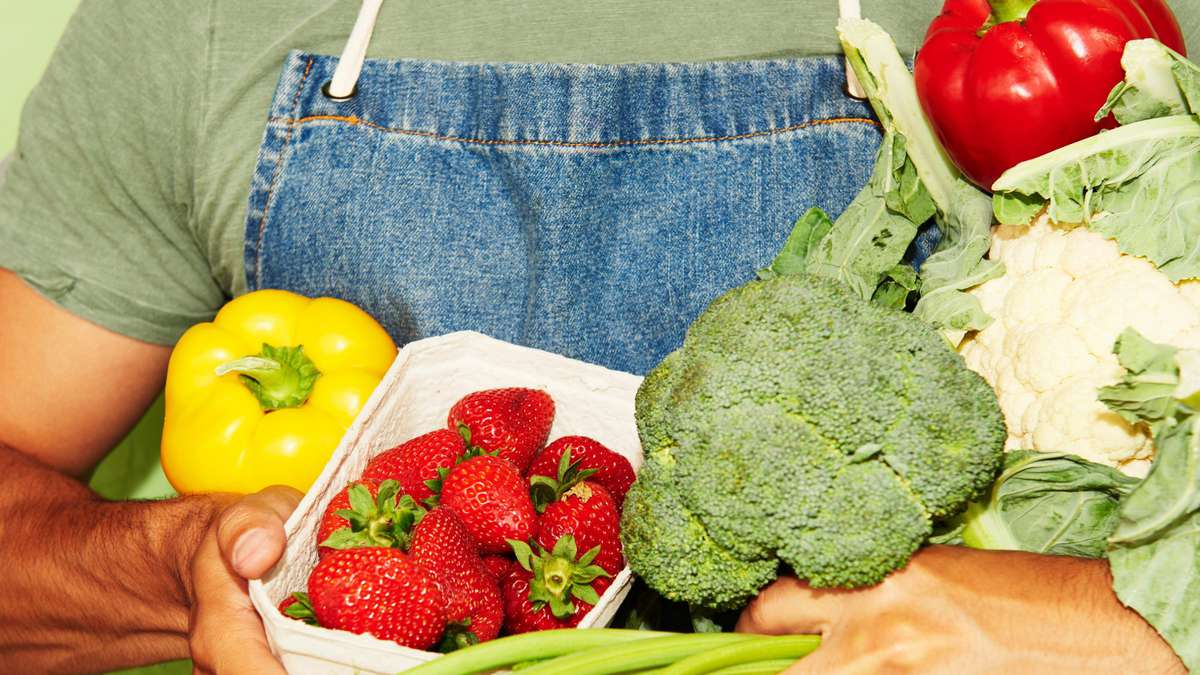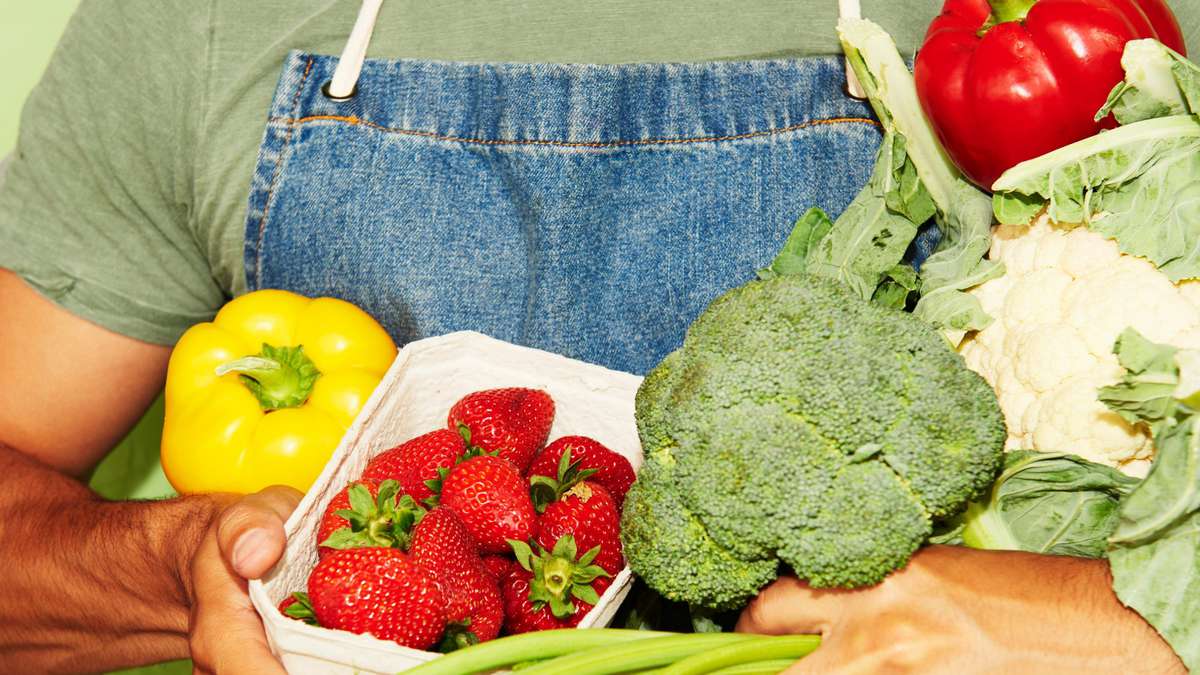One of the best meals I've had in my life was a raw vegan lasagna made from fresh vegetables layered with plant-based cheese prepared from ground nuts and herbs. This dish was nutrient-rich, satisfying, and loaded with flavor. But as a nutritionist, I think it's important to assess both the benefits and drawbacks of adopting a raw vegan diet exclusively. Here's a summary of what a raw vegan diet entails, as well as the pros and cons of embracing this strict eating routine full time.
 What-Is-a-Raw-Vegan-Diet-Here's-What-a-Nutritionist-Says-GettyImages-1166620368
What-Is-a-Raw-Vegan-Diet-Here's-What-a-Nutritionist-Says-GettyImages-1166620368
Examples of raw vegan meals
There were 1,474 exclusively vegan restaurants in the US in 2020, according to foodservice industry publication Total Food Service. Of these restaurants, many served raw dishes or are entirely raw vegan establishments. Meals you might find on a raw vegan menu include a variety of salads and marinated veggie dishes; smoothies and cold-pressed juices; açaí bowls; chia pudding; and even raw versions of nachos, pizza, and pad Thai.
In addition to being a registered dietitian, I have two plant-based culinary certifications that required practicing raw vegan cooking. In these courses, I prepared a range of fun raw vegan dishes, including cashew sour cream—made from soaked raw cashews blended with water, lemon juice, and seasonings—and raw vegan chocolate tart. You can also use a dehydrator to make some foods fit into a raw vegan diet. A dehydrator is a machine that takes the moisture out of food, allowing you to make raw forms of foods like flatbreads, crusts, and crackers.
Raw vegan diet benefits
One major pro of a raw vegan diet is that it eliminates processed foods. A 2020 meta-analysis published in the journal Nutrients found that a higher intake of ultra-processed foods is linked to adverse health outcomes, including overweight, obesity, heart disease, cancer, type 2 diabetes, irritable bowel syndrome, and depression.
Proponents of raw veganism prioritize whole plant foods and believe that cooking food at higher temperatures destroys nutrients, as well as enzymes that aid digestion. But studies are actually mixed on this. While it's true that some nutrients are diminished when vegetables are cooked, research also shows that heating also improves the availability and absorption of some antioxidants.
Overall, there aren't many studies regarding health outcomes tied to a raw vegan diet. One older study asked people who had attended a raw vegan institute for one to three weeks to complete questionnaires upon arrival and 12 weeks later. The researchers found that a stay at the institute was associated with improved mental and emotional quality of life. Anxiety decreased by 18.6%, and perceived stress was reduced by 16.4%. In addition, participants' ratings of how well they were taking care of themselves improved.
RELATED: What Is a Semi-Vegetarian Diet, and Is It Healthy? We Asked a Nutritionist
Raw vegan diet negatives
Going vegan can make it more challenging to meet the needs for certain nutrients, such as vitamins D and B12, iron, zinc, and calcium. This is especially true on a raw vegan diet because cooking options are limited. A 2019 paper published in Advanced Research in Life Sciences notes that a raw vegan may also be insufficient in protein; selenium, needed for thyroid function, DNA production, and cell protection from damage caused by free radicals and infection; and the omega-3 fatty acids eicosapentaenoic acid (EPA) and docosahexaenoic acid (DHA), which counter inflammation.
Another older study found that, among a small group of volunteers, a raw plant-based diet was associated with low bone mass and density. And long term, a raw diet has been shown to trigger partial to complete amenorrhea, the loss of a menstrual period.
A raw vegan diet can also be difficult to stick with over time. A 2008 study checked in with people 12 weeks after a one- to three-week stay at a raw vegan institute. Only 14 of 84 participants reported 80% or greater compliance to the raw vegan diet after three months. Challenges to adherence included the influence of close friends and family (who were not following the raw vegan diet), the labor-intensive nature of the diet, and being surrounded and tempted by other non-raw vegan foods.
Another con is that, since cooking kills bacteria, consuming a raw diet could potentially up the risk of foodborne illness. In addition, raw foods can be very high in fiber, which could impact digestive health since fiber intake should be increased gradually over time to allow the digestive system to adapt. Regarding weight management, a raw vegan diet could lead to weight loss (because the foods are very filling) or weight gain (if too many calories are consumed from raw nuts, coconut, and fruit), meaning with this diet, weight management can be unpredictable.
Finally, experienced raw chefs can be quite creative, but preparing raw vegan meals on your own requires time, skills—including sprouting and soaking—and in some cases special equipment. There are also some foods and beverages that may be difficult to give up, including coffee made from roasted beans, and well-cooked foods like roasted veggies and baked goods.
RELATED: 4 Reasons Why Fad Diets Fail, According to Experts
Bottom line
If you are raw vegan or are thinking of going raw vegan, consult with a registered dietitian (RD) who specializes in vegan diets. Or at the very least, refer to a reference book, like Becoming Raw ($17, amazon.com), written by two RDs. An expert, or an expert-written resource, can help you avoid nutrient deficiencies, answer pertinent questions, and offer guidance in regard to meal plans and potential supplements. And remember, it doesn't have to be all or nothing. You can benefit from even a partial raw vegan diet, along with other cooked whole plant based foods and occasional can't-live-without treats.
Cynthia Sass, MPH, RD, is Health's contributing nutrition editor, a New York Times best-selling author, and a private practice performance nutritionist who has consulted for five professional sports teams.
To get our top stories delivered to your inbox, sign up for the Healthy Living newsletter
